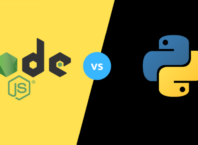In many industries, the abrupt onset of the pandemic has rather tore up the rulebook – and that’s especially applicable in the realm of cybersecurity. In a survey mentioned by the World Economic Forum, 95% of security professionals have come across increased IT security challenges as a result of the coronavirus.
The good news, however, is that many of these issues can be overcome appreciably more easily when staff – such as your own company’s – are trained to suitably adjust their security practices.
Contents
Social engineered attacks are playing on widespread fears and doubts
“Social engineering” is often leveraged to emotionally manipulate workers into giving up crucial, security-sensitive details such as IT account handles and passwords. Naturally, many of us are now more in need of help than ever before – and some unscrupulous people are prepared to take devious advantage of this yearning.
In one topical survey, 51% of respondents said that, during the pandemic, they had noticed more instances of phishing. Employees should be wary of suspicious emails asking them to click a specific link.
Employees are now largely responsible for their own cybersecurity
At a time when many employees are working from home and so their workplace could plausibly constitute a living room rather than a traditional office, it goes without saying that security can lapse more easily than before. Important data can potentially end up at the mercy of, say, workers’ spouses or children – family members who could compromise the data even inadvertently.
Educate your workers to follow Business2Community contributor Caterina Bassano’s advice that they keep fully-updated software, including antivirus software, on their devices as standard.
Senior employees are particularly vulnerable to cyber attacks
As many senior members of your workforce could be authorized to make payments, these people are especially tempting targets for cyber criminals.
Attackers are also increasingly keen on compromising individual workstations rather than company-wide infrastructure, as this tactic provides these workers with an easier means of acquiring personal information with which they can potentially blackmail high-level staffers.
Social media is another (relatively) easy target
While social media is easy and inexpensive to use for promotional purposes, making it appealing to many businesses, it also poses its own security risks. This is because, sadly, authentication and verification procedures on most social channels are poor, leaving security inadequacies for cyber attackers to exploit.
For this reason, remote workers should be careful when posting on social media and using it to communicate in either their own name or that of their business.
Identity theft is a lingering possibility, too
The risk of identity theft is another good reason why your company should act diligently to prevent workers’ personal, and personally sensitive, information from leaking.
ComputerWeekly.com advises that you lower the risk by segregating different types of data and then applying strict access controls to each of these data types. You could do this by implementing a Zero Trust architecture like Wandera’s market-leading solution, which would enable you to grant individual employees access only to the apps they genuinely need for their work responsibilities.












